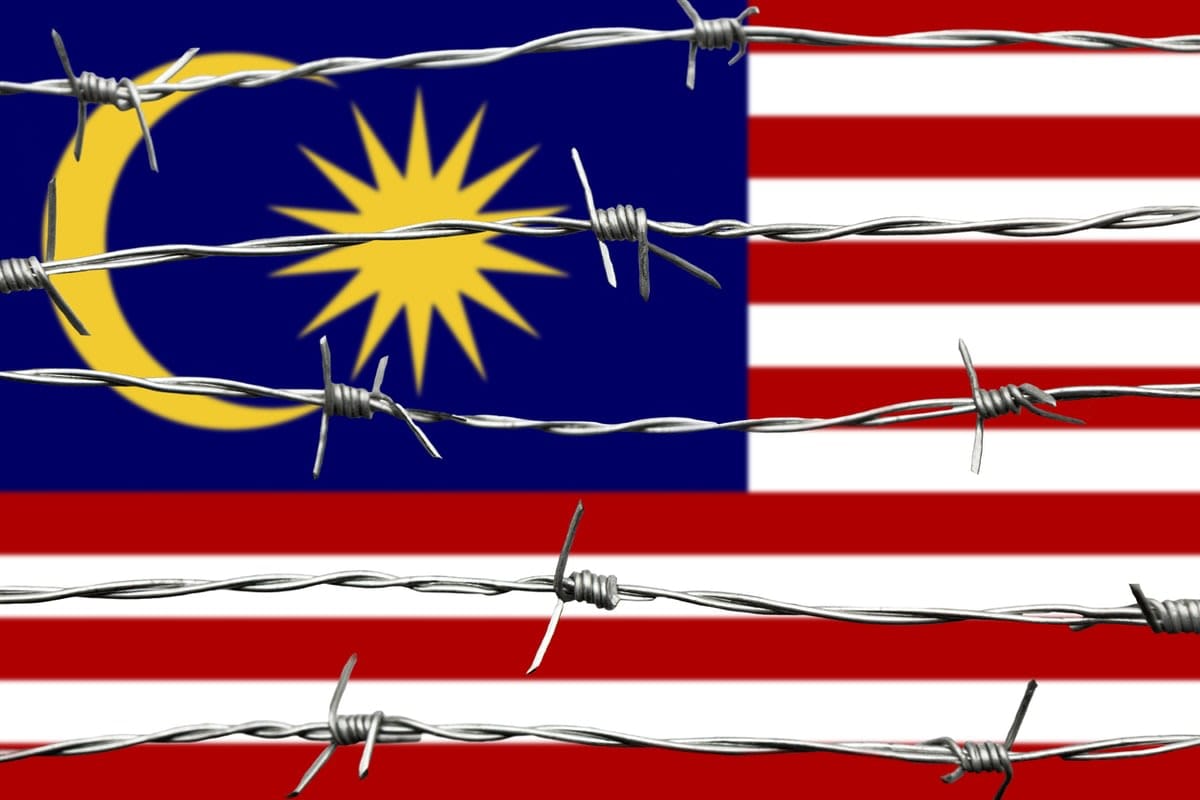
You’ve probably never heard of Huang Ziling. The young, poor and unmarried Chinese woman from the Guangxi province worked as a waitress in Guangzhou up until January 2014.
It was there, she says, that she met “She Be”, a Nigerian man who offered her a job with a monthly salary of 10,000 yuan. All she had to do was take suitcases filled with children’s items and clothing overseas.
In or around January 2014, She Be met Ziling at a restaurant in Guangzhou, gave her a luggage bag, and instructed her to travel to Malaysia. It was to be her first overseas trip. She Be opened a small hole in the bag revealing to her a box of stationery, but otherwise didn’t show Ziling what else was inside the bag. He didn’t accompany her to the airport.
When she arrived at Kuala Lumpur International Airport, the luggage Ziling was carrying was scanned, and showed the presence of suspicious substances.
A thorough search of the bag revealed methamphetamine wrapped in plastic and concealed within the tubing of 310 marker pens kept within several boxes. She was immediately arrested.
Typically, these defendants aren’t “evil drug kingpins”, but poor, vulnerable low-level offenders. The report identifies that foreign nationals are overrepresented in the Malaysian death row population.
At her trial, Ziling’s main defence was that she was merely an “innocent carrier” who, given the nature of her employment and the description of her tasks by She Be, had no reason to suspect that the luggage contained illicit drugs. However, the court at first instance found this to be a bare denial, and held that the defence did not raise a reasonable doubt in the prosecution case.
She was found guilty of drug trafficking – and sentenced to death. During her appeal last year, the Court of Appeal held that Ziling was wilfully blind, as she had “shut her eyes to the obvious”.
She ought to have inquired about the contents of the bags in the circumstances. Further, because Ziling had a legal burden to disprove knowledge, it was her duty to call relevant witnesses. Her failure to do so, the court held, meant there was no way to corroborate the truthfulness of her story.
Ziling now sits in a Kuala Lumpur prison in Malaysia.

This is not an uncommon story.
While some drug mules or carriers are coerced, most commonly, individuals who become drug mules or carriers are motivated by poverty and financial difficulties.
Notwithstanding this, even those individuals who are “willing” are typically not provided with sufficient information about the broader context of their “job”, and are routinely misinformed about what they’re carrying. This even includes misinformation about travel plans that can be altered at the last minute.
The provision of limited information is, in fact, a common tactic adopted by drug traffickers to make it difficult for drug couriers or mules to go to the police.
Such issues are compounded by flaws in procedural fairness, including lack of access to interpreters at early stages of the investigation, lack of access to legal aid lawyers, and reverse onus-of-proof requirements for drug trafficking, which are difficult for an accused to discharge when sitting in a jail cell in a foreign country.
Concerns with access to fair trials in Malaysian death penalty cases
On the 28 May, 2020, Monash University, in collaboration with Anti-Death Penalty Asia (ADPAN) and Harm Reduction International (HRI), launched its report Drug Offences and the Death Penalty in Malaysia: Fair Trial Rights and Ramifications.
The report examines how the current Malaysian death penalty legal framework falls short of fair trial guarantees and standards that are enshrined either domestically or internationally.
In recent years, Malaysia has made significant progress in moving towards the abolition of the death penalty. A key to this has been the introduction of an official moratorium on all executions, and the introduction of a discretionary death penalty for drug-trafficking offences in a number of limited circumstances.
Notwithstanding this progress, the report does identify some common themes of fair trial guarantee concerns, including:
- the unique challenges faced by foreign-national defendants who may not have adequate access to interpreters at critical early stages of a criminal matter
- that legal aid funding is limited, which has an impact on the way in which counsel can
- defend the matter effectively at all stages of the trial
- that discovery by the prosecution is insufficient
- that legal representation is not provided for during the petitions and clemency process,
- because the framework doesn’t necessarily allow for it that the petitions and clemency process can be arbitrary
- that reasons for decisions, or dissenting judgments, aren’t published in certain cases.
Further, the report focuses on an analysis of the drug-trafficking offences under the Dangerous Drugs Act 1952 (Malaysia).
It identifies four concerns in connection to the operation of the drug trafficking provisions:
- Unclear wording of the legislation
- That the provisions inadvertently provide enforcement agencies with judicial power
- That the double presumptions shift the evidential burden on to the accused
- That the reforms are not retrospective.
Not evil drug kingpins
This article focuses on one section of the report – the case studies within the report that illuminate common characteristics of drug-trafficking defendants facing the death penalty in Malaysia.
Typically, these defendants aren’t “evil drug kingpins”, but poor, vulnerable low-level offenders. The report identifies that foreign nationals are overrepresented in the Malaysian death row population.
According to Amnesty International, 44% of people sentenced to death are foreign nationals, and, of those foreign nationals, 49% have been convicted of drug-related offences.
Drug-war discourse is also profoundly gendered, and establishes the state as paternalistic protector.
Although women only comprise 11% of Malaysia’s total death row population, Amnesty International reports that 95% of females on death row have been sentenced for a drug-related crime, and 86% of women on death row are foreign nationals.
In the context of “the female drug mule”, women traffickers are prima facie seen as “potential villains”, despite the fact that “as women, they are potential victims”.

Defence of innocent carrier
In this context, the defence of an “innocent carrier” is commonly raised by accused people.
Within Malaysian common law, the defence is defined as “a state of affairs where an accused person acknowledges carrying, for example, a bag or a box … containing the dangerous drugs, but disputes having knowledge of the drugs”.
However, Malaysian courts are often reluctant to accept the defence of innocent carrier, suggesting that the defence is a “mere afterthought”, or that the conduct of the accused gives rise to wilful blindness, such as it construed in the case of Ziling.
The report illuminated some common themes among those decisions within which the accused raised the defence of innocent carrier.
Typically, the focus is on the fact that the accused was a “drug mule/carrier” – conduct that is presented by defence counsel as mitigating.
The defence is particularly prevalent among those vulnerable members of the death row population, notably foreign nationals who are female (such as female migrant workers).
It’s estimated that at least 30% of people arrested for suspected drug-trafficking globally are women.
These people are targeted by drug-trafficking syndicates “because they are typically poor and uneducated, but hold passports”. In fact, it’s estimated that at least 30% of people arrested for suspected drug-trafficking globally are women, “usually for low-level involvement, including as drug couriers/mules”.
The defence is rarely accepted by trial judges in Malaysia in the context of drug trafficking and the death penalty.
Barriers to legal assistance
The report identifies that a significant population of those sentenced to death in Malaysia are individuals convicted of drug offending, many of whom face socioeconomic, nationality and language barriers that prohibit their access to the requisite level of legal assistance needed to properly test the prosecution case.
This is compounded by legal frameworks that fall short of ensuring fair-trial guarantees that are paramount. It is hoped that the research and the recommendations identified in this report provide a significant contribution to discussions and reforms aimed at ultimately abolishing the death penalty in Malaysia.





